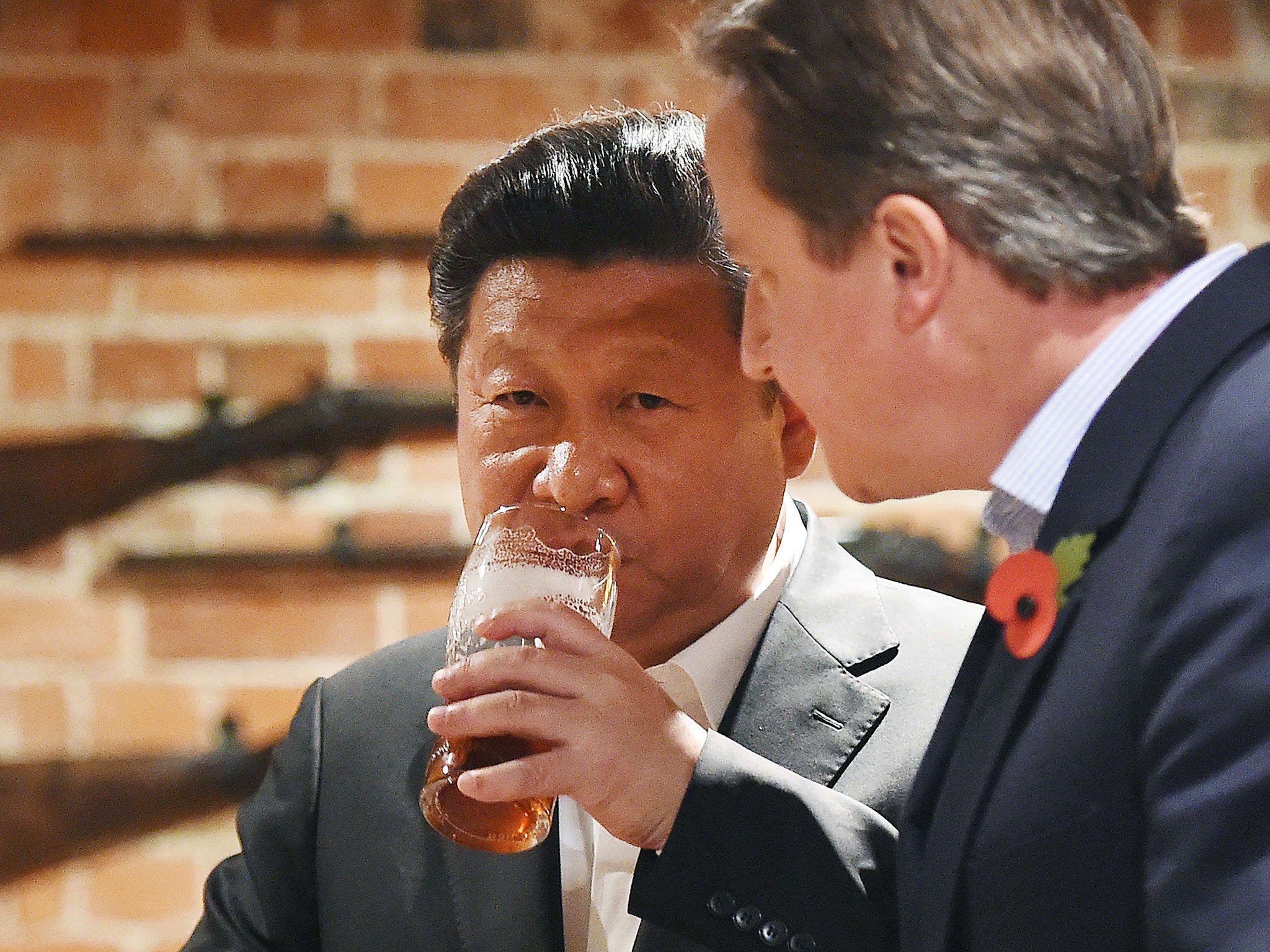UK’s special relationship with the US under strain over differences on the global role of China
The contrast was starkly visible in the recent state visits by President Xi Jinping to London and Washington

The escalating confrontation between Washington and Beijing over China’s claims in the South China Sea is not only exceedingly dangerous in its own right. It also illustrates how dealing with an ever more powerful China is placing a particular strain on Britain’s ties with its most important ally, the United States.
For all the warm thoughts it elicits, the “special relationship” currently looks less special than in a long while. Quite apart from their differing views on China, the US has increasingly shown its concern at Britain’s cuts in defence spending and its absence from the diplomatic front lines in conflicts such as Ukraine. As seen from Washington, the country that once prided itself on punching above its weight on the global stage now appears to be barely punching at all.
In the case of China however, the two are actually moving in opposite directions – as when, despite strenuous objections from Washington, Britain became a founding member of the Asian Infrastructure Investment Bank, the Chinese-promoted equivalent of the World Bank, which has always been dominated by the US.
The contrast was starkly visible in the recent state visits by President Xi Jinping to the two capitals. In Washington his reception was lavish but guarded. In London it was fulsome to the point of fawning. The difference reflects both historical experience and contemporary world view.
The US sees China as an adversary seeking to usurp its position as top nation. President Barack Obama may talk of a “pivot to Asia”, but America tends to see the China relationship as a zero-sum game, in which one side’s gain is the other’s loss. Any appeasement or concession to Beijing, it is argued, will only prompt China to seek more. Throw in America’s post-war role as guarantor of the status quo in the western Pacific and its close alliance with the Philippines and other countries in the region concerned by Chinese expansionism, and the dispatch of a US warship into contested waters around the artificial islands China is building in the Spratlys makes perfect sense.
Pragmatic and mercantilist, Britain however has no illusions about its lesser place in the world, more than half a century after the end of empire. Today boosting our economy is the paramount concern – especially when Europe’s is faltering – and when the very issue of continuing UK membership of the EU is on the table. In pursuing a “golden friendship” with Beijing, David Cameron’s Government has made a hard-headed calculation of the national interest.
In this context, emphasis on lavish trade deals with China, still the world’s most dynamic economy, also makes perfect sense. Why should Britain care about distant goings-on in the South China Sea, so long as its sea lanes, a vital artery of trade, remain open and business is as usual?
Only time will prove whether Mr Cameron’s calculation of the national interest is right. But its moral implications are already highly questionable, and will set Britain at further odds with the US. President Xi is shaping up to be the most repressive Chinese ruler since Mao Zedong, yet human rights did not feature in London. The pragmatic British maintain that patient work behind the scenes will achieve more than any public scolding – so why ruffle feathers unnecessarily?
But that approach is as disingenuous as the argument that China has an unassailable historical right to suzerainty in the South China Sea. The merest glance at a map reveals its actions for what they are: a “sea-grab” based on the doctrine of might makes right, at the expense of weaker neighbours with far sounder geographical claims. To ignore this may be convenient. It is also wrong.
Join our commenting forum
Join thought-provoking conversations, follow other Independent readers and see their replies
Comments